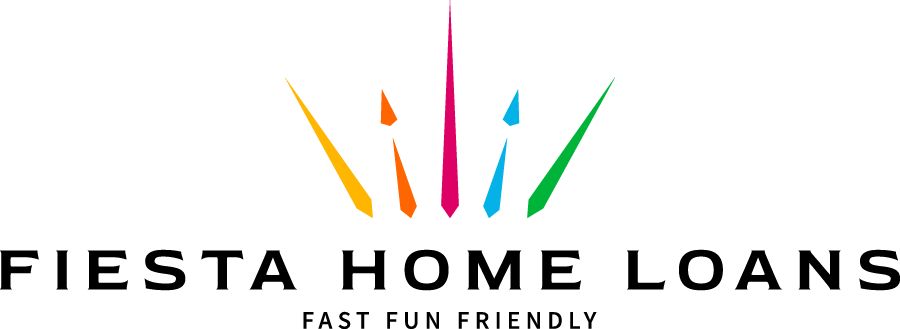If you’re a homeowner in Colorado or Florida, chances are you’ve built up some equity in your property. Equity is the difference between what your home is worth and what you owe on your mortgage, and it’s a valuable asset you can leverage when you need extra funds. Two of the most common ways to tap into home equity are Home Equity Loans and Home Equity Lines of Credit (HELOCs).
Both options can provide a financial lifeline for major expenses, like home renovations, debt consolidation, or emergency situations. But they work in different ways and may suit different financial goals. In this guide from Fiesta Home Loans, we’ll explore the key differences between home equity loans and HELOCs to help you decide which option best fits your needs.
Understanding Home Equity Loans
What Is a Home Equity Loan?
A Home Equity Loan allows you to borrow a lump sum of money based on the equity you have in your home. It’s sometimes called a second mortgage because it essentially adds another loan to your original mortgage. The loan is paid back in fixed monthly payments over a set period, typically 5 to 30 years, depending on the terms you agree to.
The amount you can borrow through a home equity loan is determined by the current value of your home, minus any outstanding mortgage balances. Most lenders will let you borrow up to 85% of your home’s equity, but this can vary depending on your credit score and financial situation.
Key Features of a Home Equity Loan
- Fixed Interest Rates: Home equity loans usually come with fixed interest rates, meaning your monthly payments stay the same over the life of the loan. This makes budgeting easier.
- Lump Sum Payment: You receive the total loan amount upfront, which can be useful if you know exactly how much you need for a specific project.
- Set Repayment Period: The loan is repaid over a fixed term, which can range from 5 to 30 years.
- Lower Rates than Personal Loans: Because home equity loans are secured by your property, they generally offer lower interest rates compared to unsecured personal loans or credit cards.
When Is a Home Equity Loan the Right Choice?
A home equity loan might be your best option if you:
- Need a large, one-time sum of money for a specific purpose (e.g., home renovation, medical expenses, or major purchases).
- Prefer the predictability of fixed monthly payments.
- Have a good credit score and sufficient equity in your home.
It’s particularly beneficial for homeowners who want the security of a fixed interest rate and a defined payment plan. For example, if you’re planning to remodel your kitchen or finance your child’s college education, a home equity loan gives you the stability of knowing exactly what your monthly payments will be.
Understanding HELOCs (Home Equity Lines of Credit)
What Is a HELOC?
A Home Equity Line of Credit (HELOC) works differently from a home equity loan. Instead of receiving a lump sum, a HELOC provides you with a revolving line of credit based on your home’s equity. This means you can borrow as much or as little as you need, up to a certain limit, during a specified “draw period”—usually 5 to 10 years.
HELOCs are similar to credit cards in that you can borrow, repay, and borrow again, as long as you stay within your credit limit. During the draw period, you typically only pay interest on the amount you’ve borrowed. After the draw period ends, you enter the repayment phase, which may involve fixed payments, or a transition to fully paying off the balance.
Key Features of a HELOC
- Variable Interest Rates: Unlike home equity loans, HELOCs generally come with variable interest rates, which means your payments can fluctuate based on market conditions.
- Flexible Borrowing: You can borrow funds as needed, making it ideal for ongoing projects or expenses.
- Interest-Only Payments During Draw Period: In the initial phase, you may only need to make interest payments, with principal payments required once the repayment period begins.
- Access to Funds Over Time: HELOCs allow you to draw money as you need it, giving you flexibility for projects that require ongoing funding.
When Is a HELOC the Right Choice?
A HELOC may be the better choice if you:
- Need access to funds over a period of time rather than all at once (e.g., ongoing home repairs or tuition payments spread over several years).
- Want the flexibility of borrowing as needed without committing to a fixed lump sum.
- Can handle the uncertainty of fluctuating interest rates and payments.
For example, if you’re planning multiple home improvement projects over several years or want to have a financial safety net for unexpected expenses, a HELOC gives you the flexibility to borrow as needed.
Comparing Home Equity Loans and HELOCs
Home Equity Loan
- Payment Structure: Fixed monthly payments
- Interest Rate: Fixed
- Disbursement: Lump sum payment
- Best For: One-time large expenses (e.g., renovations)
- Loan Term: Fixed, typically 5-30 years
- Fees: May have closing costs
- Flexibility: Low flexibility (fixed loan amount)
HELOC
- Payment Structure: Variable payments, based on amount borrowed
- Interest Rate: Variable
- Disbursement: Credit line with revolving access
- Best For: Ongoing or unpredictable expenses (e.g., tuition)
- Loan Term: Draw period (5-10 years) + repayment period (10-20 years)
- Fees: May have annual fees, closing costs, or inactivity fees
- Flexibility: High flexibility (borrow as needed)
Which Option Is Best for You?
Deciding between a home equity loan and a HELOC comes down to your financial goals and personal preferences. Here are some questions to ask yourself:
- How much money do I need? If you need a large, one-time amount of cash, a home equity loan might be the better fit. If your expenses will be spread out over time, a HELOC offers more flexibility.
- Can I handle fluctuating payments? With a home equity loan, your payments will be predictable, making it easier to budget. However, if you’re comfortable with potential changes in interest rates, a HELOC could be a good fit.
- Do I want flexibility in how I borrow? A HELOC gives you the ability to borrow as needed, while a home equity loan is more rigid with a fixed amount and payment schedule.
Both home equity loans and HELOCs are powerful tools for leveraging the equity in your home, but they serve different purposes.
At Fiesta Home Loans, we understand that each homeowner’s financial situation is unique. That’s why we’re here to help guide you through the process of choosing the right option for your needs. Whether you’re ready to renovate your dream kitchen or need extra funds for your child’s education, we’ll help you make the best choice.
Ready to Explore Your Home Equity Options?
If you’re a homeowner in Colorado or Florida and want to tap into your home’s equity, Fiesta Home Loans is here to assist. Contact us today to discuss whether a home equity loan or HELOC is the right choice for you, and let us help you achieve your financial goals.
By incorporating these SEO elements, this blog post will be optimized for search engines, while still offering valuable, relevant information to potential clients at Fiesta Home Loans in Colorado and Florida.

Meet Alfredo Acevedo: Your Guide to Financial Clarity
Alfredo Acevedo shares his expertise and passion for guiding clients through the mortgage process with confidence. With years of experience, he’s dedicated to simplifying home loans and empowering borrowers with informed decisions, whether you’re a first-time buyer or refinancing.
Like this article? Spread the word!
Related Posts
April 15, 2025
5 Ways to Speed Up Your Home Loan Approval Process: Fast Financing Tips from Fiesta Home Loans
Discover 5 expert tips to speed up your home loan approval with Fiesta Home Loans. Fast,…
March 25, 2025
FAQ: Manufactured Housing Loans
Discover everything you need to know about manufactured home loans with Fiesta Home…
March 15, 2025
VA Loan Refinance: A Guide to Improving Your Terms with Fiesta Home Loans
Refinance your VA loan with Fiesta Home Loans to secure lower rates, reduce monthly…






